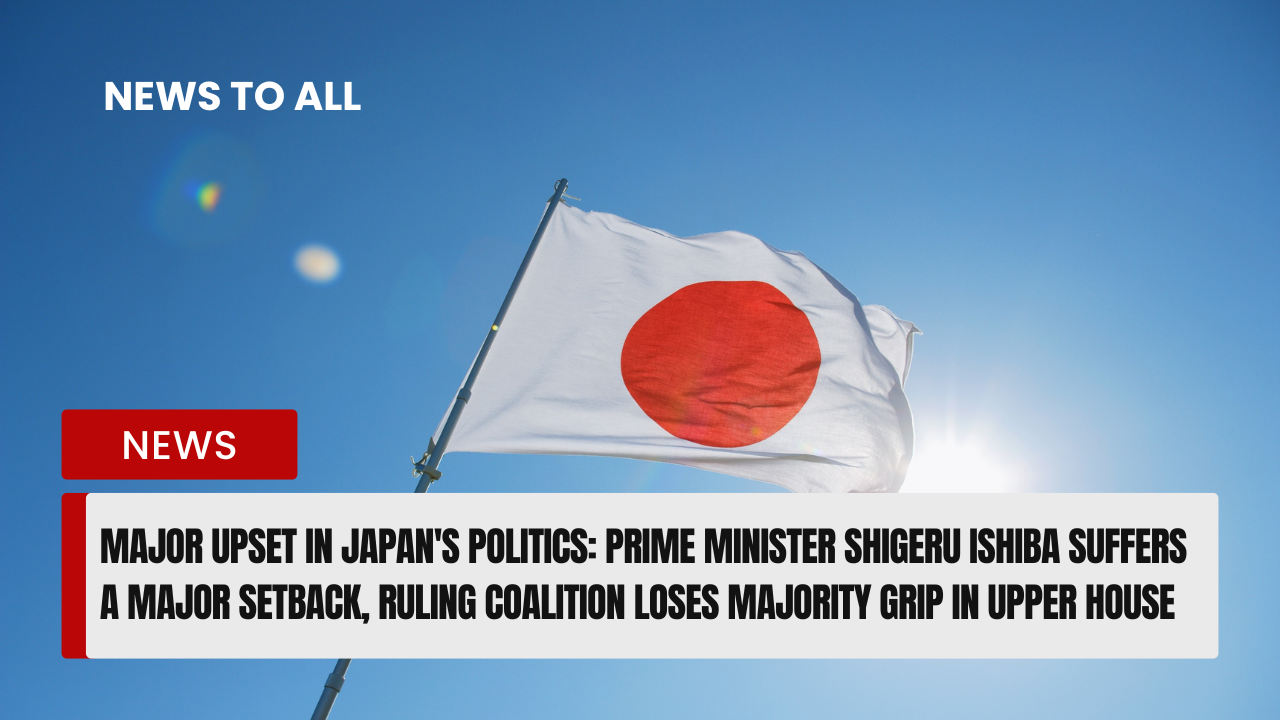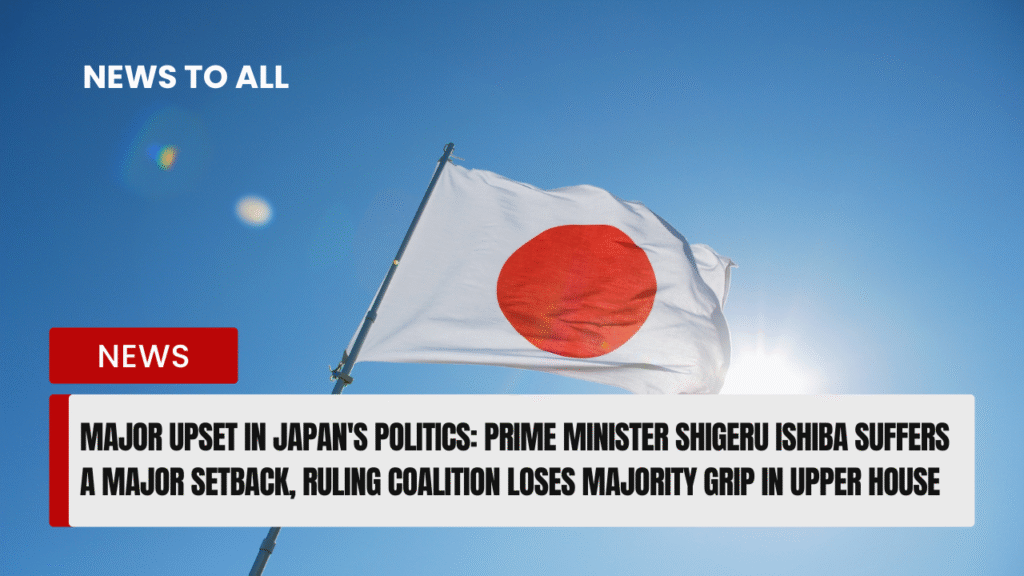July 22, 2025 – Japan’s ruling coalition government has suffered a major political setback. The ruling party has lost its majority in the Upper House of Parliament after national elections held on Sunday. The result is considered a major setback for Prime Minister Shigeru Ishiba, as he is now leading a minority government in both legislative houses of the country—the first time in the history of the Liberal Democratic Party (LDP).

In the election for the 248-seat House of Councillors (Upper House), Prime Minister Ishiba’s party LDP and its junior partner Komeito failed to win a total of 50 seats, which were necessary to maintain a majority. The coalition got only 47 seats, which shows a decline of 19 seats from the previous position. The final results announced on Monday morning not only highlighted the lack of public trust in the Ishiba administration, but also the unexpected rise of Sanseito, a hard-line right-wing populist party.
The biggest gainer in this election was Sanseito, a party with a minor presence earlier. This time it won 14 seats, while it had only one seat before the election. Sanseito, which literally means “Party of Japanese”, contested the election under the slogan “Japanese First” and this slogan proved to be very popular among a dissatisfied voter class.
According to political analysts, the main reason for Sanseito’s success is that the party effectively capitalized on the anger and sense of insecurity of the common people. Growing resentment over economic issues and the growing concern among the public about the direction of the country worked in the party’s favor. Some of the key points in the party’s manifesto included:
Anti-Globalist and Nationalist Ideology: The party’s ideology, which many critics have described as xenophobic, succeeded in scaring voters with terms like “silent invasion”.
Economic populist policies: The party highlighted the issue of inflation, especially the price of rice, which has nearly doubled in the past year.
Conspiracy Theory: The party, which started on YouTube, has often promoted false theories about vaccines and “globalist elites”.
Sanseito leader Sohei Kamiya, a 47-year-old former English teacher and supermarket manager, has publicly praised President Donald Trump’s “bold political style”. He also said that his “Japanese First” slogan is not to ban foreigners, but to revive the livelihood of the countrymen. However, the party’s manifesto and earlier statements have faced widespread criticism.
The election results have created a state of instability in Japanese politics. Losing a majority in the upper house does not mean that the prime minister will have to resign or that new elections will be held, but it will make it extremely difficult for Ishiba to pass new laws and budgets. In his statement after the election defeat, Prime Minister Shigeru Ishiba called the result a “harsh result” and said he would “humbly and sincerely accept” it. He expressed his desire to remain prime minister and said it was his responsibility to handle important issues such as ongoing trade negotiations with the United States.
However, now that the LDP has fallen into a minority in both houses for the first time (this has never happened since the party was formed in 1955), Ishiba is likely to face increased pressure not only from the opposition but also from within his own party. He may either be asked to resign or he may have to find a new coalition partner to provide stability to the government.
This election result not only marks a turning point in Japanese politics, but it also indicates that the public is now looking for alternatives to traditional parties—no matter how controversial they may be.


